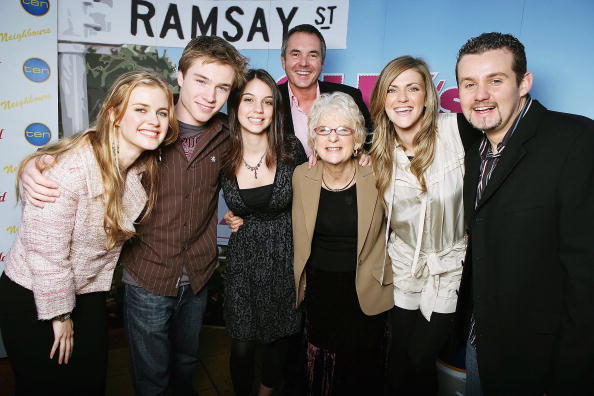Hunt plots an ‘OK, but’ budget to spread the pain and fling it to the future

Yesterday was a big day for Britain. Neighbours, the much-loved Australian soap opera, cancelled in August this year to much fanfare and nostalgia, was brought back. Amazon had come to the rescue.
Beyond hopes of bringing back the 1980s and the fiscal measures of Nigel Lawson, Margaret Thatcher’s chancellor for the better part of the decade, the theme song provides an unlikely summary of what Jeremy Hunt wanted to achieve with his Autumn Statement.
“With a little understanding, you can find the perfect blend,” trills the opening tune, with a somewhat sinister jingle in the background.
Hunt was hoping to find enough funds for the Treasury coffers through tax hikes and spending cuts but fling them far enough into the future that he avoids a situation where any one particular group is so aggrieved, their cries become an unbearable cacophony.
In other words, everyone is going to hurt. In every corner, except perhaps the pensioners, there will be those saying “OK fine, but”. This is intentional, it means none of them will be loud enough or large enough to cause too much of a migraine for the chancellor. Not for now, at least.
Those concerned about the impending decline of the national health service, will be relieved to hear the NHS has been given just enough more spending to appease its chief executive Amanda Pritchard.
But this will come in the form of higher taxation. The National Insurance hike, first implemented by Rishi Sunak and then culled by Kwasi Kwarteng, will be replaced by a freezing of the threshold for an extra two years until 2028. If Hunt wants “Scandinavian services”, we might be looking at Scandinavian taxes.
Local councils will also be able to hike council tax, an incredibly regressive policy, to 5 per cent without a local referendum. But the departmental budgets for housing and communities will face future cuts.
There will be significant business rates relief for the retail, hospitality and leisure sectors and bills won’t go up with inflation. But also frozen will be the VAT thresholds for more firms. According to the Federation for Small Businesses, one in four companies are held back by the VAT threshold.
Plans to reform business rates have not so much been thrown into the long grass as thrown in and set on fire. The Online Sales Tax, which was billed as a challenger to business rates, has been ditched. This leaves our economy clinging onto an outdated system which hurts our high streets, our communities and ignores the realities of a digital world.
The headline rate of R&D credits will jump from 13 per cent to 20 per cent. But this will be paid for by cutting the credits available for small businesses, landing a heavy blow to those wanting to start their own business and contribute to the competition both Hunt and Sunak claim to swear loyalty to.
There will be continued investment into the net zero agenda, but a windfall tax will be extended even for electricity generators, including those who rely on renewables.
Hunt promised to ensure “the broadest shoulders carry the heaviest load”, an echo of George Osborne, and brought welfare payments up in line with benefits. But households up and down the country will see a significant fall in living standards, with household disposable income falling by more than 7 per cent over the next two years, bringing incomes in real terms down to 2013 levels. In other words, eight years of growth will be wiped out.
But pensioners, even those one in four over 65s couples who are millionaires, will see their incomes go up with inflation – 10.1 per cent.
Inflation will mean the cost of servicing government debt takes up almost the biggest chunk of cash, second only to the budget for the department of health and social care.
All of these plans come with a colossal OK, but. They bring down inflation, but only to 7.1 per cent by mid next year. They might, for now, reassure the markets, but most spending cuts won’t happen until 2028, leaving significant room for uncertainty and political manoeuvre in the next election. They fill the blackhole, but at the cost of any meaningful plans for growth. They keep the NHS and education systems afloat, but with more promises for bureaucratic “reviews” of the workforce and of the skills offering.
They make everyone miserable, for a prolonged period of time, but, as Jeremy Hunt was at pains to say: there are those that have it worse.
The entire speech was couched in terms of, Britain has it tough, but Germany has it worse. Our taxes are high, but they are not as high as Canada.
Just as neighbours do, Jeremy Hunt is hoping the web of measures will allow everyone to rub along without too much friction to hold the economy, and the politics of his party, together until the next election.
